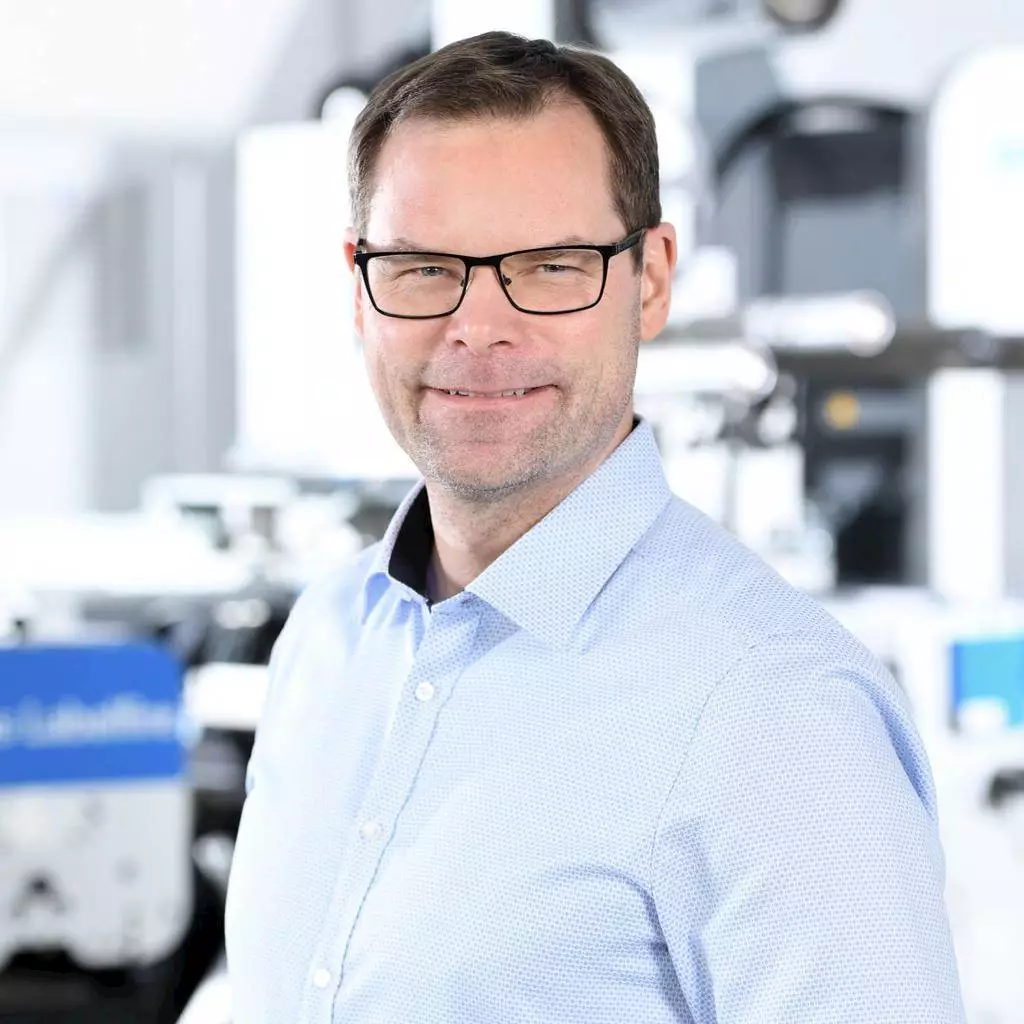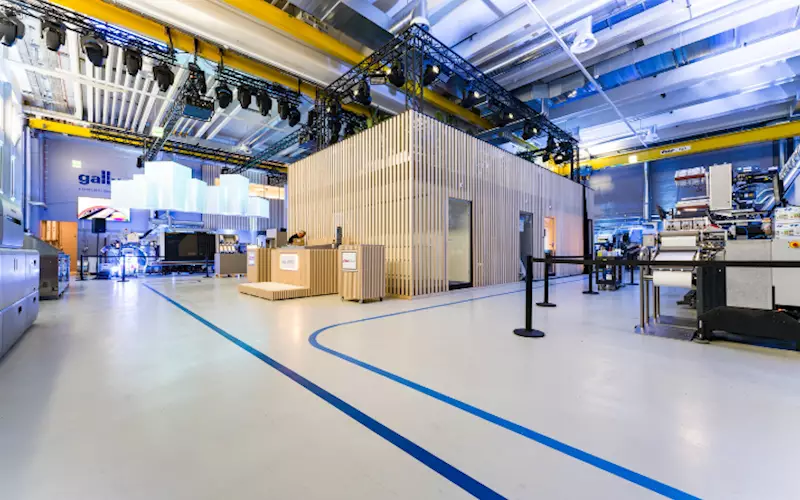Heidelberg-Gallus's LMAI Conference 2023 talk will outline how smart labels production of the future will be
The LMAI Conference 2023 is set to open on 20 July 2023 at Hotel Leela in Jaipur. During the event, Alexander Uwe, the product manager for digital labelling solutions at Gallus, will showcase the company's newest advancements in process technology and the integration of Artificial Intelligence (AI) into new label presses.
17 Jul 2023 | By Noel D'Cunha
Gallus is celebrating its 100 years of existence this year. On 19 June 2023, Gallus celebrated its centenary by inaugurating the Global Experience Centre at St Gallen, Switzerland, which will promote the learnings, development, training, and innovations leading the label world. "We are also happy to bring some of these insights during the LMAI conference," said Samir Patkar, president of Heidelberg India. Gallus is a part of Heidelberg.
Gallus also launched its new Gallus One with converting options. This solution brings everything inline and features a digital printer with an inline flexo station, a semi-rotary die-cutter that can change a job within one minute and process up to 70 m/min, and vision inspection systems.

.jpg)
(l) Alexander Uwe, product manager-digital labelling solutions, Gallus and (r) Gallus One
While the new generation label presses are connected remotely, a lot of press and process data gets stored in the cloud. These data are used to create analytical reports highlighting the performance of the presses. "In today's times, it is very important to lean the productivity and efficiencies of the presses. Analysing the overall equipment efficiency (OEE) is a major KPI concerning today's label printers. Unfortunately, most label printers have an average OEE of 20%, indicating ample room for improvement. However, one can only fix a problem if he is aware of the exact problem. The MIS report can pinpoint exact problems and their locations."
This is just the first step. Changeover times are defined by job run lengths, colour matching, press and accessories (inks/ consumables, aniloxes and pre-press) standardisation, substrate qualification, idle time analysis, job scheduling, proofing, operator skills, press automation and many others. While digital technology may address some challenges, it's crucial to fully embrace the digital ecosystem with the right inks, process analytics, workflow integration, eCommerce, predictive monitoring, and hybrid printing to enable inline processing and converting advantages, not just digital printing.
According to Patkar, it's crucial to integrate pre-press, press, and post-press operations into one workflow. "By doing so, process automation can be driven digitally, and the operations won't work in silos as they currently do. This can be achieved through workflow connectivity and storing information in the cloud for analytics," said Patkar. "This will be the future of smart labels production."
According to various research estimates, the global print label market size has reached USD 45.2-billion in 2022. With the consumption of labels in India estimated to have crossed the 1-billion sqm mark, the market's total value is estimated to be close to Rs 10,000-crore. With the global market expected to reach USD 58.8-billion by 2028, the Indian market is also expected to grow at a CAGR of 4.17% from 2023-2028.
Patkar said to watch out for specific developments in labelling and packaging within the food and beverage industry. "Advanced labelling technologies are being developed to provide more information and enhance consumer engagement. Smart labels equipped with sensors, NFC (Near Field Communication), or RFID (Radio Frequency Identification) tags enable real-time tracking of products, ensure authenticity, and enable interactive experiences for consumers."
As Patkar pointed out, knowing what needs to be corrected is key. Label converters should consider whether they know the amount of time the press is idle for each job, once QC approves it for printing. "I can bet it would be a very interesting number that does not need NASA-level technology to correct and improve. By making this small change, it could greatly improve OEE. Keep an eye out for updates."











 See All
See All